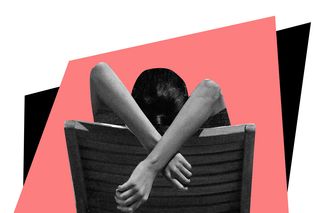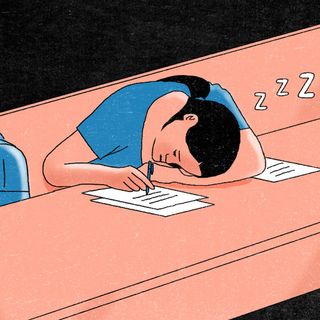
Redefining ‘Leisure’ As a Necessity And Not a Waste Can Lower Stress At Work
“We live in a global society and there are people everywhere that hear the same messages about how important it is to be busy and productive.”

In a series of four studies, researchers examined the effects of the widespread belief that productivity is more important than leisure. They found that people who agreed with this were associated with poorer mental health. The research, published on Saturday in the Journal of Experimental Social Psychology, outlined the results of multiple studies on how people relate to the idea of productivity and their mental health.
The study showed that people who did not view leisure as useful did not experience the proven mental and physical health benefits of relaxation. People who thought of leisure or free time as wasteful reported lesser enjoyment of anything fun and were found to be more likely to experience greater unhappiness, stress, and depression.
“We live in a global society and there are people everywhere that hear the same messages about how important it is to be busy and productive,” said Rebecca Reczek, professor of marketing at Ohio State and co-author of the study.
“Once you believe that, and internalize the message that leisure is a waste, our results suggest you’re going to be more depressed and less happy, no matter where you live.”
The first two studies in the research looked at the difference between people’s perceptions of leisure as an end in itself (terminally motivated leisure) and leisure as a means to an end (instrumentally motivated leisure). The former, more than the latter, was found to be associated with notions of unproductivity or wastefulness among many people, who subsequently reported poor mental health outcomes.
One of the four studies cited in the research involved 199 college students. Researchers found that the more wasteful they thought any particular leisure activity was, the less they enjoyed it and the more unhappiness, stress, depression, and anxiety they consequently showed. This was true of active leisure activities (exercise), passive leisure (watching television), social, or solitary.
In another study involving around 300 online participants, researchers found that how people spent their time on Halloween influenced their perception of its productivity — while those who went to parties reported lower enjoyment, those who accompanied their children on trick-or-treating reported higher enjoyment, as they saw it as part of fulfilling a specific responsibility.
There is, therefore, a working solution at hand. According to the researchers, it is not easy to change people’s ideas about leisure, since they are so culturally ingrained. For people who view it negatively, connecting leisure with a long-term goal and framing it within productivity can help people enjoy free time better.
Related on The Swaddle:
The Fursat Series Documents Women’s Small Moments of Resistance Via Leisure
“If leisure can be framed as having some kind of productive goal, that helps people who think leisure is wasteful to get some of the same benefits,” Reczek added. The study is also interesting in light of emerging discourses around leisure as a vehicle for greater productivity itself. Business pundits and experts “rationalize proposals to give us back our time by promising that they will contribute to overall prosperity. A well-rested workforce, the argument goes, is a more productive one,” writes Kryzystof Pelc, who argues that leisure is viewed as a productivity hack defeats its entire purpose.
If we examine this socio-culturally, understanding this study could prove useful. Who gets to enjoy leisure, and how do different cultures define it? There is also a class and caste dimension to leisure and how it is defined, which is relatively underexplored in research. But the implications of the study on how damaging the productivity narrative is for people’s enjoyment of their free time is arguably universally applicable, even if there are differences in how it manifests differently in different people.
Research has supported the fact that men tend to have more free time and leisure than women. For women in some societies, leisure blends in with domestic labor of some kind. Watching TV is combined with chopping vegetables, perhaps, or listening to music is combined with childcare. But the study’s findings of leisure and productivity give one pause — it suggests that the gendering of leisure may additionally be hiding negative mental health effects for women.
The pandemic, moreover, exacerbated the perception of leisure as needing to be rooted in productivity, as many vowed to use their extra free time to work on specific projects and goals rather than slowing down.
“If we move away from the traditional definitions of leisure understood primarily in the language of choice and freedom, we see leisure being trapped in existing power relations,” writes Tannistha Samanta and Ashwin Tripathi. They suggest that to truly emancipate ourselves from the guilt and shame associated with enjoying the free time that is rightfully ours, leisure must be recalibrated as resistance.
Rohitha Naraharisetty is a Senior Associate Editor at The Swaddle. She writes about the intersection of gender, caste, social movements, and pop culture. She can be found on Instagram at @rohitha_97 or on Twitter at @romimacaronii.
Related


Mentally Stimulating Jobs Can Lower Risk of Dementia, Confirms Study
